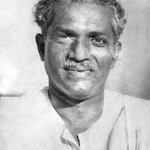Sunday Times 2
A colossus in Lankan politics, he fought for social justice
It was 75 years ago that Philip and Kusuma Gunawardena attended the sessions of the Indian National Congress at Ramgarh, representing the Lanka Sama Samaja Party. The LSSP had sent delegations to earlier Congress sessions, notably Robert Gunawardena and Edmund Samarakkody in 1938 and Leslie and Vivienne Goonewardene in 1939. For the first time that year, 1940, the Ceylon National Congress had sent a delegation, but it was not familiar with the leadership of the Indian Congress. Philip, on the other hand, was familiar with the leading figures in Indian politics, many of whom he had known as a student in the West, such as Jayaprakash Narayan and Niharendu Datta Mazumdar.

Philip Gunawardena
I was then a student at Calcutta University and I went down to Ramgarh to meet Philip. I and Kusuma were rather bewildered onlookers as Philip went on a whirlwind tour of meetings with the leaders of the Congress. Among the people he met were a little known member of the Burmese Dobama Asiayone (Our Burma Union), Aung Sang, and his later ally Netaji Subhas Chandra Bose. Bose recalled that both he and Philip had been prevented from returning to their native countries by the British Imperialists. Bose was only permitted to return to India after he was elected Chairman of the Indian National Congress in 1938. Philip had been permitted, earlier, to return to Sri Lanka, through the intercession of Sir Baron Jayatilleka after Sri Lankans were granted universal adult franchise. He actually wanted to go to India, as he judged, correctly, that the key to Sri Lanka’s freedom lay with the Indian independence movement. The British, very cleverly, diverted him to Sri Lanka.
Back in the island, Philip involved himself in the Youth League movement. Then came the Suriya Mal Movement, which arose because the British were selling poppies to support their war veterans, while Sri Lanka’s war veterans were left unaided. Since the British crushed the Matale Rebellion in 1848, there had been no national movement against colonialism, but that spirit was aroused by the Suriya Mal Movement. The anti-imperialist struggle deepened with the formation in 1935 of the Lanka Sama Samaja Party, which was wedded to the principles of scientific socialism.
Subhas Chandra Bose said that the answer to India’s poverty was socialism. He pointed out that socialism was not a European concept, but an eastern one, an Indian one. He called attention to the Buddhists, who practised socialist concepts in India 500 years before Christ.
This thinking was to influence Philip considerably. Friederich Engels declared that Marxism was not a fixed dogma, but a living political philosophy which changed with the times and circumstances. Philip was never afraid to adapt his thinking to the practical needs of the hour.
His biggest achievement was not the Paddy Lands Act, revolutionary though it was, but the foundation of the Multi-Purpose Co-operative Societies. In those days, where Gunasinghepura is today, you could see ranks upon ranks of stalls with cheap vegetables and other food items, brought there from all over the island by rank upon rank of lorries emblazoned with the insignia of the Multi-Purpose Co-operatives. Unfortunately, the Co-operatives lost much of their character later.
Later, he tried to reform the fisheries of Sri Lanka on the same lines, to enable the ordinary fishermen to get a larger slice of the fruits of their labour, which were going to the middle-men, the large fish mudalalis. However, there were vested interests, which did not allow him to do so. There was, for example, a person in Kotahena who spent enormous sums to prevent Pieter Keuneman of the Communist Party from getting elected as MP; this person was very active in preventing Philip from carrying out his reforms.
Philip Gunawardena was a colossus on the political scene of this country. He had unequalled rapport with the leaders of the anti-colonial movement, in Asia, Africa, America and Europe. He has left an indelible mark on the history of not only Sri Lanka, but also of India.
(S. Piyasena is a veteran journalist, who began his career covering the State Council proceedings, later joining Lake House. He was the first Sinhala-English simultaneous interpreter in parliament, but resigned the post to contest Mawathagama for MEP in the 1960 general election.)

